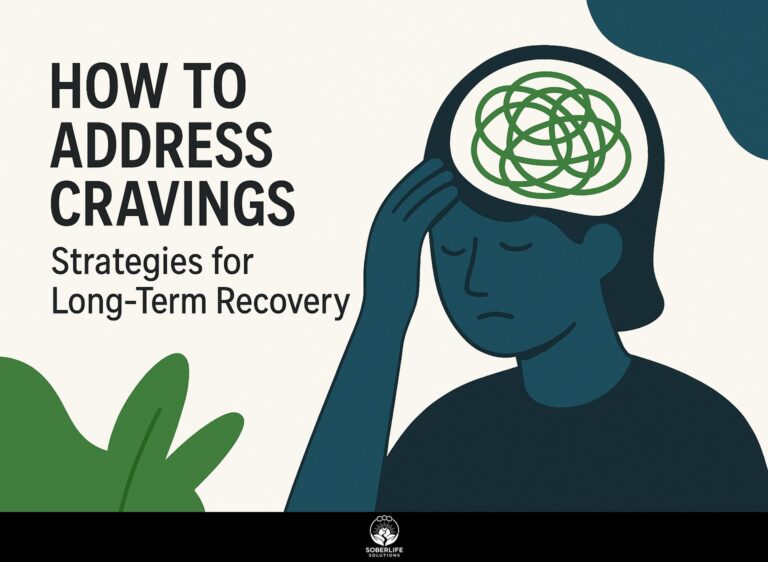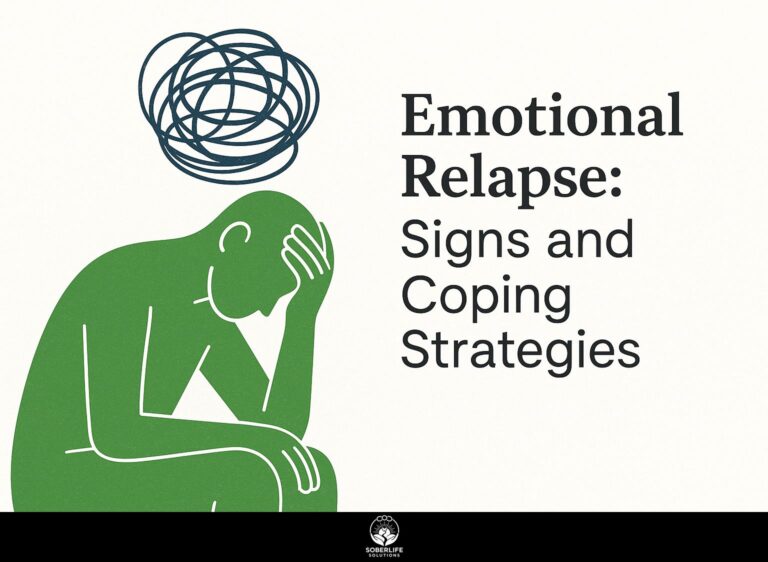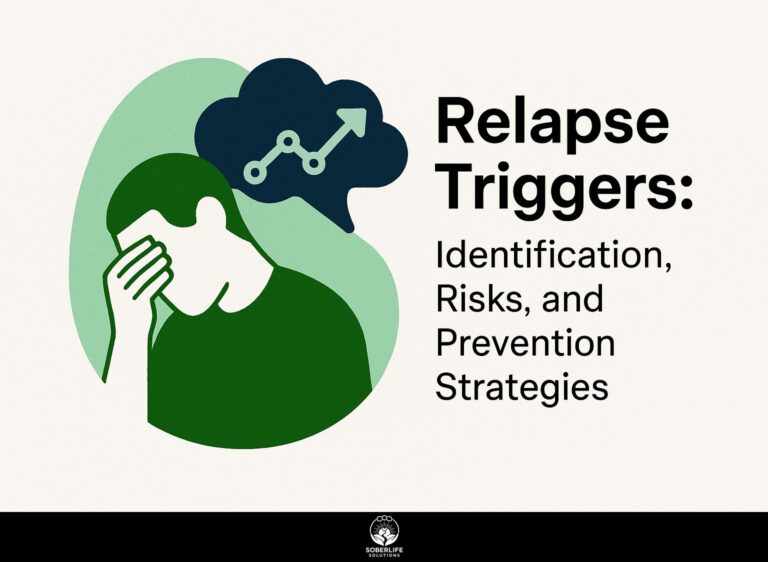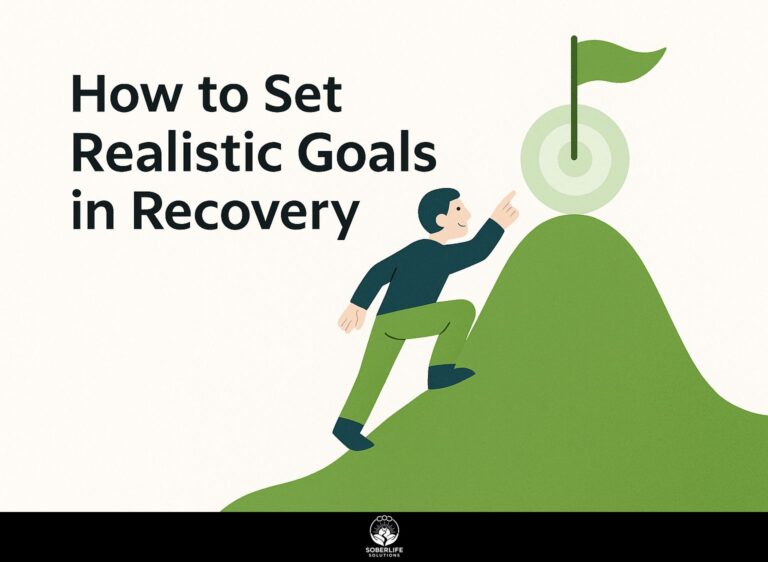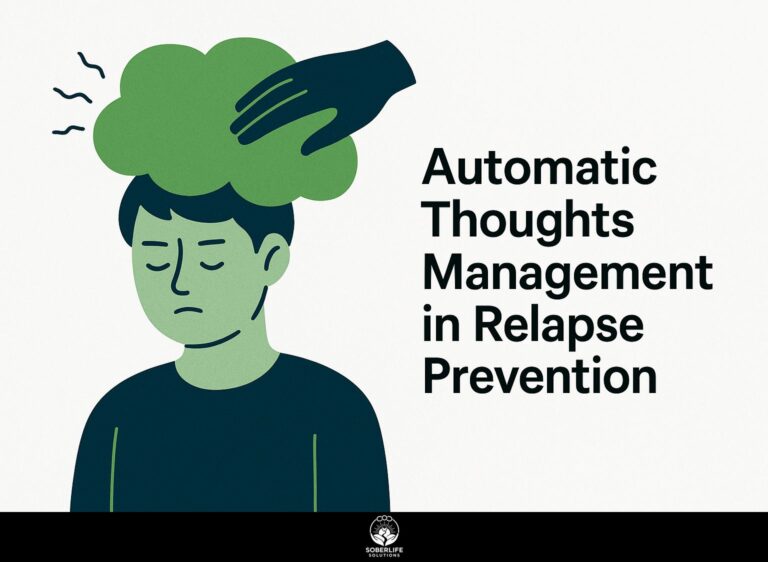How to Prevent Alcohol Relapse: Mindfulness and Self-Care Strategies
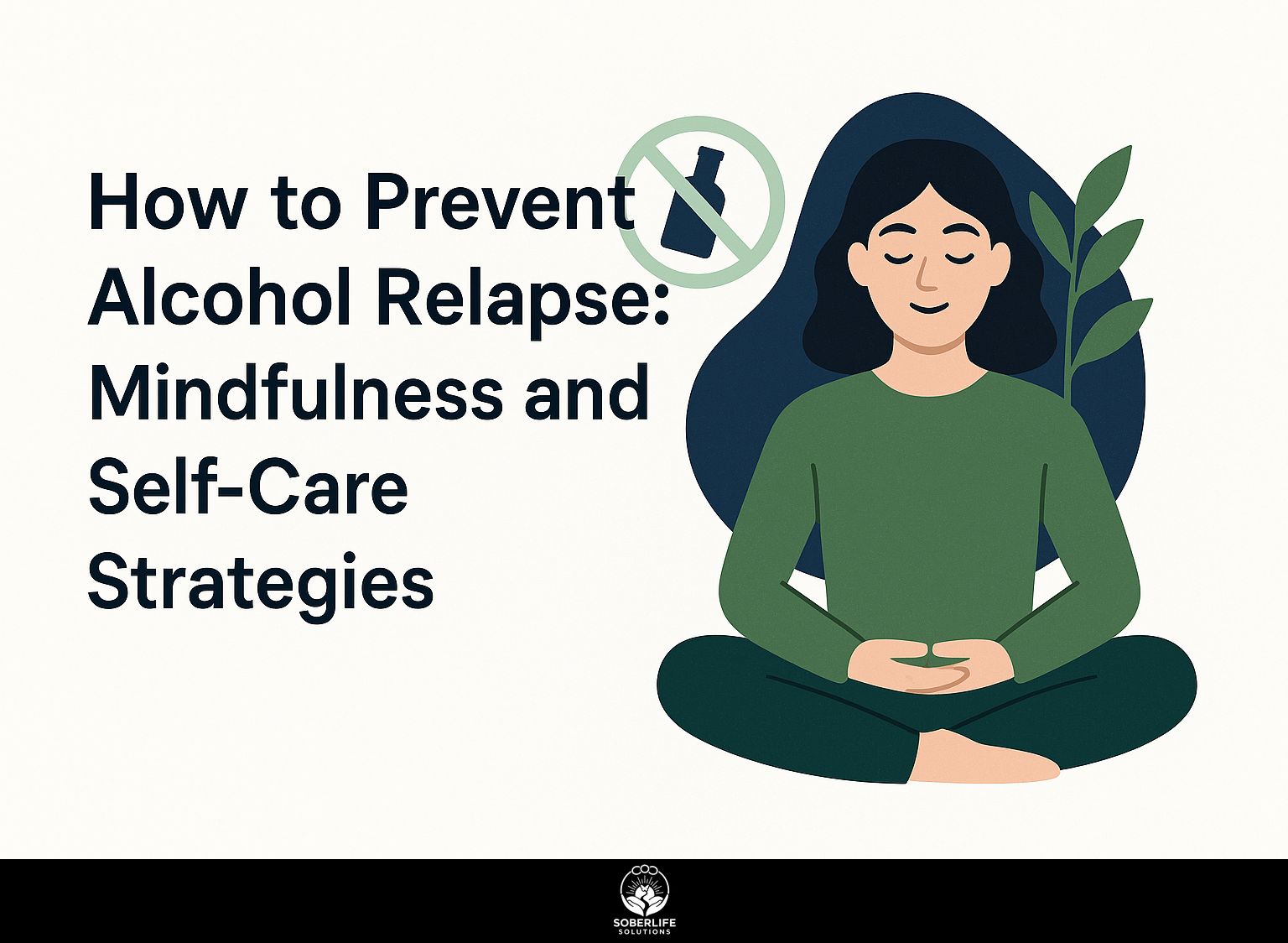
Stopping alcohol relapse involves careful planning and taking care of yourself. Knowing the details of emotional and mental relapse can greatly improve your efforts to prevent relapse. By combining techniques like cognitive therapy with mindfulness, you can build a resilient foundation for lasting recovery. This article discusses useful mindfulness and self-care methods to help you manage triggers and stay sober. Let’s dive into a healthier, more balanced life.
Key Takeaways:
Understanding Relapse Triggers
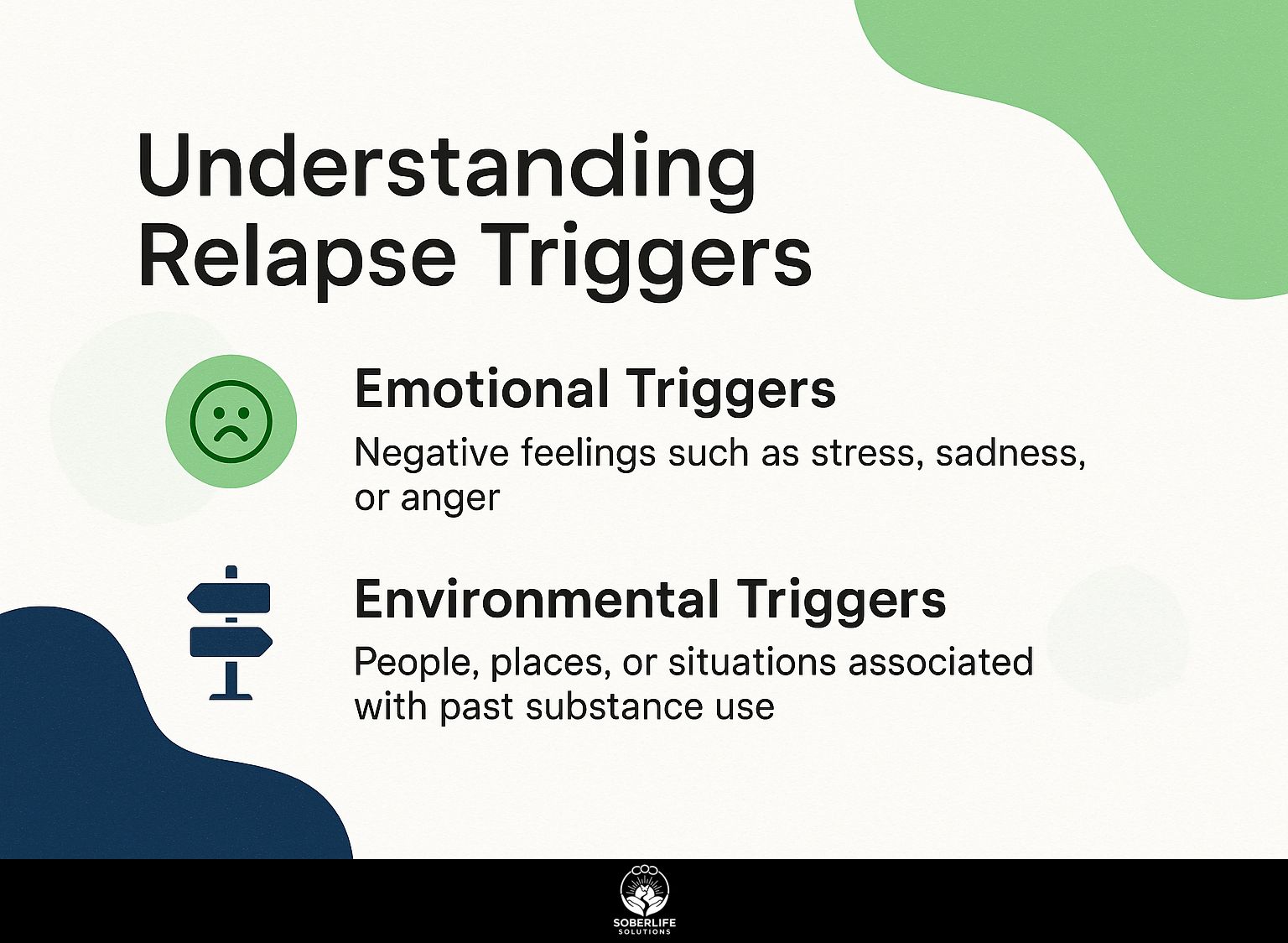
Finding and recognizing the causes of relapse is important for creating practical methods to lower the chance of relapse during recovery. This view is supported by insights from the Whole Health Library’s comprehensive guide, which offers strategies to effectively reduce relapse risk. As mentioned, understanding mental relapse signs can be crucial, and exploring what mental relapse signs to watch can further strengthen your recovery plan.
Emotional Triggers
Emotional triggers such as stress, anxiety, and depression can significantly increase the risk of relapse, necessitating effective emotional management strategies.
To handle these triggers, think about using various methods.
Cognitive Behavioral Therapy (CBT) is particularly effective; for instance, you can reframe negative thoughts by challenging their validity and focusing on positive alternatives. According to the American Psychological Association, CBT offers structured techniques that are essential in managing emotional triggers.
Journaling is another powerful tool-track your emotions daily to identify patterns that lead to cravings.
If stress emerges, techniques like deep breathing or mindfulness meditation can help ground you.
Adding these techniques to your daily habits can strengthen emotional resilience and may lower the chance of relapse.
Environmental Triggers
Environmental cues, like certain places and social settings, are important in causing cravings and possible setbacks for people in recovery.
- To manage these triggers effectively, start by identifying high-risk environments, such as bars or parties, where alcohol is prevalent.
- Develop a proactive plan by opting out of these situations or attending alternative gatherings, such as coffee meet-ups or community workshops.
- Consider employing a recovery app like Sober Grid to connect with supportive peers. This can give you emotional support and connect you with a group that shares your commitment to sobriety.
- Always engage a sober companion when socializing, ensuring you have someone to lean on in challenging moments. According to a study on News Medical, environmental cues can significantly impact the difficulty of maintaining sobriety.
The Role of Mindfulness in Recovery
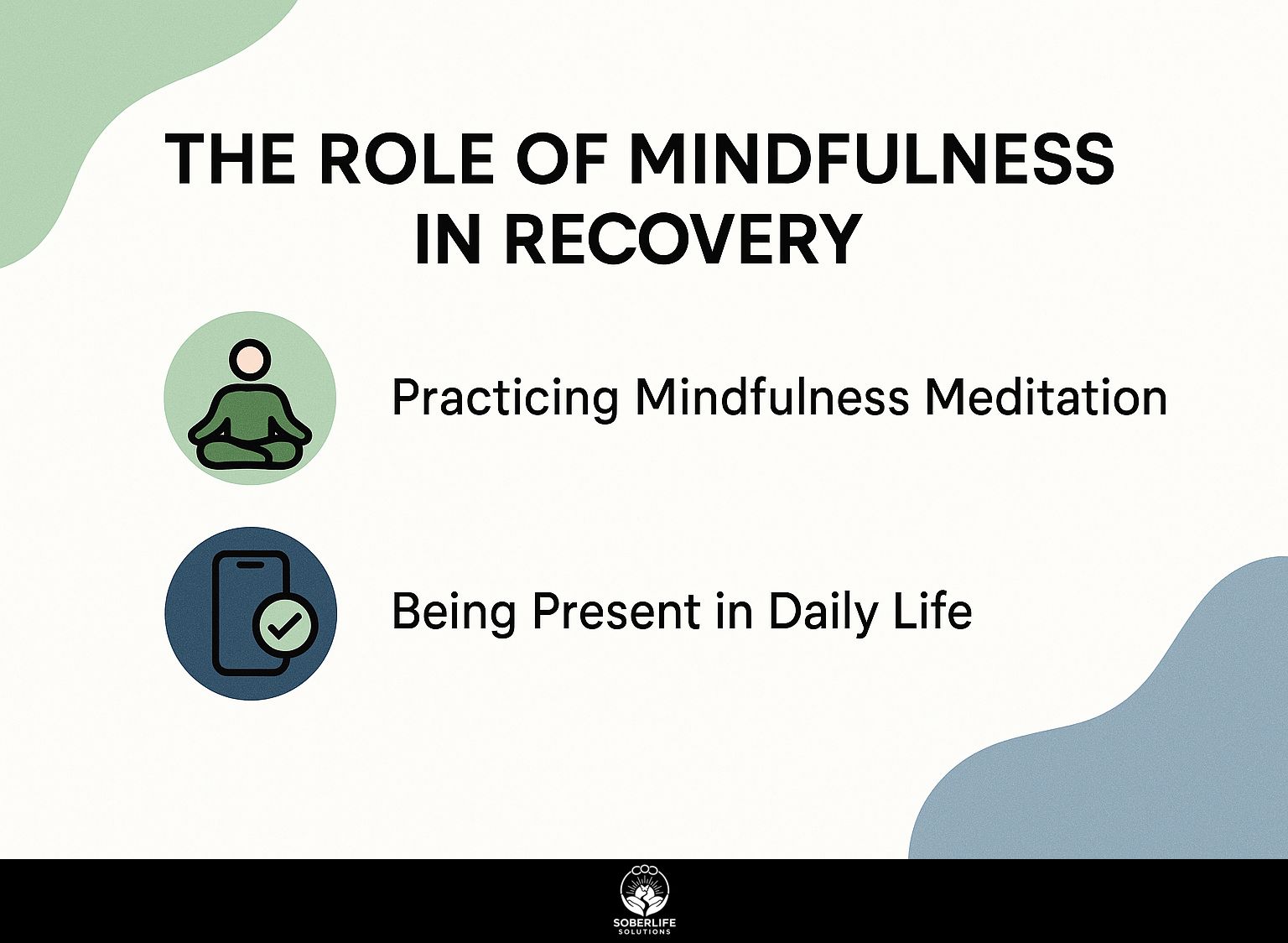
Mindfulness exercises are important in recovery. They help people stay present and aware of their thoughts and emotions to avoid relapse. For those exploring these methods, our discussion on mindfulness and meditation in addiction recovery offers valuable insights and techniques that enhance this practice.
Practicing Mindfulness Meditation
Mindfulness meditation can help you become more aware of yourself and better control your emotions, offering an effective way to combat relapse triggers.
To start your mindfulness meditation practice, consider using guided meditation apps like Headspace or Calm, which offer structured sessions for about $12.99/month.
Begin your practice with a simple script:
- Find a comfortable seated position.
- Close your eyes.
- Take a deep breath in through your nose, focusing on the sensation of the air filling your lungs.
- Hold for a moment, then slowly exhale through your mouth, feeling any tension release.
- Keep concentrating on your breath for five minutes. When your mind wanders, gently bring your focus back.
This foundational technique helps build resilience against stressors.
Being Present in Daily Life
Practicing mindfulness during daily activities can improve recovery routines and reduce the likelihood of relapse by promoting attention to the present.
To practice mindfulness, try exercises like mindful walking. Pay attention to how your feet feel with each step and notice your breathing rhythm.
Mindful eating encourages you to savor each bite, paying attention to flavors and textures. You can practice deep breathing techniques, inhaling slowly for a count of four, holding for four, and exhaling for six.
To help with your routine, use apps like Insight Timer to set alerts. These apps can guide you through sessions and help you stick to a regular schedule.
Self-Care Strategies for Sustained Recovery
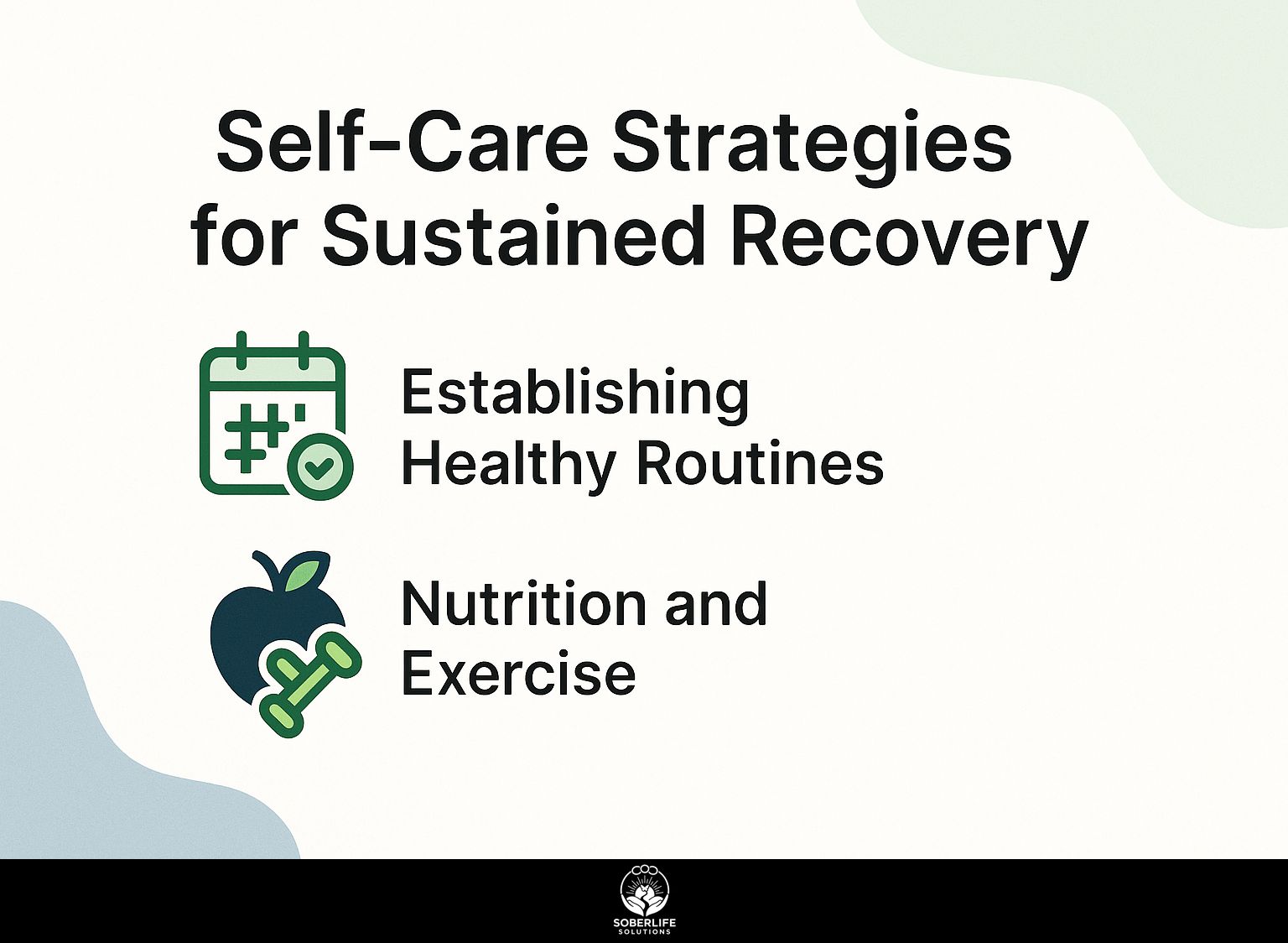
Practicing good self-care is important for staying on the path to recovery and avoiding relapse by improving overall health. For those focused on enhancing their recovery journey, embracing the practice of self-love can be pivotal.
Establishing Healthy Routines
Creating and maintaining healthy routines can provide structure and stability, which are essential for successful recovery.
To establish daily routines, start by setting aside specific times for key activities.
For instance, dedicate 30 minutes each morning for mindfulness exercises such as meditation or journaling, using apps like Headspace or Day One.
In the evening, implement a winding-down routine-consider reading or gentle stretching, perhaps guided by an app like Yoga for Beginners.
Use tools like Todoist or Trello to track your goals and progress.
This structured approach assists in maintaining focus and benefits your mental health, simplifying everyday tasks.
Nutrition and Exercise
A balanced diet and regular exercise are fundamental components of recovery that can positively influence both physical and mental health.
To improve your recovery, think about using meal-planning apps like MyFitnessPal or Cronometer. These tools help you monitor your daily food consumption and check that you’re getting the nutrients you need.
Aim for at least 150 minutes of moderate exercise each week; activities like brisk walking, cycling, or yoga can be effective.
Bringing these elements together helps people recover more quickly from physical issues and also aids in mental health by lowering stress and lifting mood. Regularly adjust your diet based on your exercise intensity and recovery needs to achieve optimal results.
Building a Support Network
Building a strong support system is important for people in recovery, offering emotional help and accountability during tough periods.
To find local Alcoholics Anonymous (AA) or Narcotics Anonymous (NA) meetings, start by visiting their official websites, which have tools to locate meetings based on your area.
Websites like Meetup.com can help you find nearby support groups and recovery events. Don’t overlook the importance of online communities; forums such as Reddit’s r/stopdrinking and Facebook groups can offer real-time support and shared experiences.
Curious about how to improve your quality of life during alcoholism recovery? Connecting with local and online groups improves your recovery process by building relationships and providing useful guidance.
Setting Realistic Goals
Setting realistic and achievable goals in recovery helps maintain motivation and provides clear milestones to strive toward.
To set clear goals, start by outlining specific actions, like attending therapy sessions twice a week.
Make this measurable by recording attendance and noting emotional responses. Make sure the goal is realistic; if doing it twice a week feels difficult, try doing it once a week to start.
Your goals should matter-connecting directly to your overall recovery process, like getting better at handling stress. Setting deadlines for goals encourages quick action; for instance, plan to finish a self-help course in three months.
Use tools like Google Calendar to set notes and monitor your progress easily. Worth exploring: Apps for habit-building can further streamline your goal-setting process.
Frequently Asked Questions
How do mindfulness and self-care strategies help prevent alcohol relapse?
Mindfulness and self-care strategies can help prevent alcohol relapse by promoting self-awareness and emotional regulation, reducing stress and cravings, and improving overall well-being.
What are some examples of mindfulness techniques that can be used to prevent alcohol relapse?
Examples of mindfulness techniques include deep breathing, meditation, yoga, body scans, and journaling. These practices can help individuals become more aware of their thoughts, feelings, and behaviors, and make more conscious and intentional choices.
What role does self-care play in preventing alcohol relapse?
Taking care of yourself is important to avoid returning to alcohol use because it allows people to focus on their physical, emotional, and mental health. This can include activities such as exercise, proper nutrition, getting enough sleep, and engaging in enjoyable hobbies and activities.
How can I use mindfulness to cope with triggers that may lead to alcohol relapse?
Mindfulness can help individuals become more aware of their triggers and develop healthier coping mechanisms. Practicing mindfulness can help individuals recognize when they are feeling triggered and make the conscious decision to engage in a more positive activity or thought instead.
What self-care habits can I add to my daily routine to avoid alcohol relapse?
Adding self-care habits to your day can mean taking time to relax, getting enough sleep, exercising, and talking to friends or a therapist for help.
How can I stay motivated to continue practicing mindfulness and self-care to prevent alcohol relapse?
Try setting small, manageable goals and keep an eye on your progress. Pay attention to the positive effects of practicing mindfulness and taking care of yourself. Consider reaching out for help from a therapist or joining a support group. Remember to be patient and kind to yourself, as developing new habits and coping mechanisms takes time and effort.

